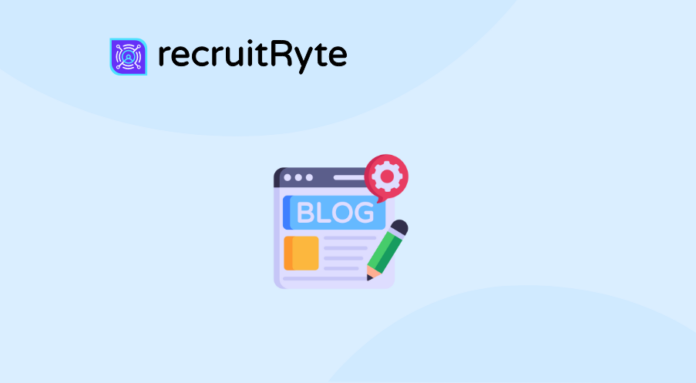Artificial intelligence (AI) is rapidly transforming the way businesses operate, offering innovative solutions that drive efficiency, enhance customer experiences, and unlock new opportunities for growth. From revolutionizing customer service with AI-driven chatbots to optimizing supply chain operations, AI’s impact is felt across every industry. Predictive analytics are enabling businesses to make smarter decisions, while AI-powered marketing strategies are reshaping how companies engage with their audiences. Additionally, the automation of routine tasks and the enhancement of cybersecurity through AI are paving the way for a more secure and efficient business environment. This article explores the top AI applications revolutionizing industries today.
Join tirfblog.com as we uncover the details of this topic.
1. AI-Driven Customer Service Solutions
AI-powered customer service solutions are revolutionizing how businesses connect with their customers, offering faster, more personalized, and efficient support. Chatbots and virtual assistants, driven by AI, are now capable of handling a diverse range of customer inquiries, from answering common questions to processing orders and resolving issues, all in real time. These tools not only alleviate the workload for human agents but also guarantee instant responses for customers, thereby improving their overall experience.
Moreover, AI can analyze customer interactions to predict future needs, allowing businesses to proactively address concerns before they escalate. This predictive capability enables companies to offer tailored recommendations, driving customer satisfaction and loyalty. Machine learning algorithms also continuously improve the quality of interactions by learning from each engagement, leading to more accurate and helpful responses over time.
By integrating AI into customer service, businesses can significantly reduce response times, lower operational costs, and deliver a consistent, high-quality experience that meets the growing expectations of today’s consumers. As AI technology continues to evolve, its role in customer service will only become more integral.

2. AI in Supply Chain Optimization
Artificial intelligence (AI) is transforming supply chain management, empowering businesses with sophisticated tools to streamline operations, cut costs, and enhance efficiency. AI-driven analytics enable companies to forecast demand with remarkable precision, facilitating more effective inventory management and mitigating the risks of overstocking or shortages. This predictive capability allows businesses to react swiftly to fluctuations in consumer behavior, market trends, and external disruptions.
AI empowers enhanced supply chain visibility, facilitating real-time tracking of goods throughout their journey. This transparency enables companies to identify bottlenecks, streamline logistics, and improve delivery times. Analyzing vast amounts of data from diverse sources, AI can recommend optimal routes and transportation methods, minimizing delays and fuel consumption.
Moreover, AI-driven automation is revolutionizing warehouse operations, utilizing robots and autonomous systems to carry out tasks such as sorting, packaging, and shipping. These advancements not only accelerate processes but also minimize the likelihood of human error, resulting in more accurate and dependable supply chain operations.
The global marketplace is becoming increasingly competitive. Businesses that leverage AI for supply chain optimization gain a significant advantage. This allows them to operate more efficiently, meet customer demands more effectively, and ultimately drive higher profitability.

3. Predictive Analytics for Business Growth
Predictive analytics, powered by AI, is becoming a cornerstone for business growth by enabling companies to make data-driven decisions with confidence. By analyzing historical data, AI can identify patterns and trends that help predict future outcomes, giving businesses the insights they need to stay ahead of the competition. Whether it’s forecasting sales, anticipating customer behavior, or identifying potential market opportunities, predictive analytics allows companies to plan strategically and allocate resources more effectively.
One of the key benefits of predictive analytics is its ability to enhance decision-making across various business functions. For instance, marketing teams can use predictive models to determine the most effective campaigns, while sales teams can focus on high-potential leads identified through data analysis. Additionally, predictive analytics can help mitigate risks by forecasting potential challenges and enabling businesses to take proactive measures.
By integrating predictive analytics into their operations, businesses can optimize performance, improve customer satisfaction, and ultimately drive growth. As AI technology continues to evolve, the role of predictive analytics in shaping business strategies will only become more critical.

4. AI-Powered Marketing Strategies
AI-powered marketing strategies are transforming how businesses reach and engage with their target audiences. By leveraging AI, companies can analyze vast amounts of consumer data to create highly personalized marketing campaigns that resonate with individual preferences and behaviors. This level of personalization enhances customer experiences, leading to higher engagement rates and stronger brand loyalty.
One of the key applications of AI in marketing is in content creation and distribution. AI algorithms can generate tailored content based on user interests, ensuring that the right message reaches the right audience at the right time. Additionally, AI-driven tools can optimize ad placement, targeting consumers who are most likely to convert, thereby maximizing return on investment.
AI also plays a crucial role in automating repetitive marketing tasks, such as email campaigns, social media postings, and customer segmentation. This automation not only saves time but also allows marketing teams to focus on more strategic activities, such as campaign planning and creative development.
Moreover, AI can provide real-time analytics, offering insights into campaign performance and consumer behavior. By continuously learning from these insights, AI enables marketers to refine their strategies and achieve better results, ultimately driving business growth and staying competitive in the market.
5. Automation of Routine Business Processes
AI-powered automation of routine business processes is revolutionizing how companies function. This technology enables businesses to achieve greater efficiency, cut costs, and free up human employees for more strategic endeavors. By automating repetitive and time-consuming tasks, including data entry, invoice processing, and report generation, AI streamlines operations and minimizes the potential for human error.
AI-powered automation offers a substantial advantage: the capacity to process large volumes of data swiftly and precisely. In finance departments, this translates to automated account reconciliation, payment processing, and payroll management, all with remarkable accuracy. This automation minimizes manual intervention, leading to accelerated operations and ensuring the smooth and uninterrupted execution of crucial business processes.
Automation tools, such as AI-powered chatbots, are proving invaluable in customer service. By handling routine inquiries and transactions, they free up human agents to tackle more complex issues. This results in faster response times and increased customer satisfaction.
AI empowers businesses to streamline their workflow management through automation. This allows for efficient task assignment and completion. Automated systems monitor progress, send timely reminders, and adjust priorities based on live data. This dynamic approach fosters productivity and helps businesses meet deadlines consistently.
Adopting AI-powered automation allows businesses to streamline their processes, enhance precision, and optimize resource allocation. This leads to greater efficiency, ultimately boosting growth and competitiveness in today’s dynamic marketplace.
6. Enhancing Cybersecurity with AI
AI is playing a pivotal role in enhancing cybersecurity, providing businesses with advanced tools to detect, prevent, and respond to threats more effectively. Traditional cybersecurity methods often struggle to keep up with the rapidly evolving landscape of cyber threats, but AI’s ability to analyze large volumes of data in real-time allows for quicker identification of potential risks.
AI-driven security systems can monitor network activity continuously, identifying unusual patterns or behaviors that may indicate a cyber attack. By learning from past incidents, these systems can predict and prevent similar threats before they occur, reducing the risk of data breaches and other security incidents.
Moreover, AI can automate responses to certain types of cyber threats, such as phishing attempts or malware attacks, by instantly isolating affected systems and alerting security teams. This rapid response capability minimizes damage and allows for faster recovery.
AI also enhances the ability to protect sensitive data by implementing advanced encryption methods and managing access controls more effectively. By integrating AI into cybersecurity strategies, businesses can better safeguard their assets, protect customer information, and ensure compliance with regulatory requirements, all while staying ahead of increasingly sophisticated cyber threats.
AI is revolutionizing business operations across various domains, from customer service and supply chain optimization to marketing, automation, and cybersecurity. By harnessing the power of AI, companies can achieve greater efficiency, enhance decision-making, and secure their digital environments. As AI technology continues to advance, its applications will expand, offering even more innovative solutions to drive business growth and competitiveness. Embracing AI today is not just an option but a strategic necessity for staying ahead in a rapidly evolving market.
tirfblog.com

